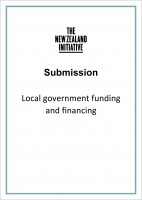
Submission: Local government funding and financing
Read our submission to the New Zealand Productivity Commission on their Local Government Funding and Financing Issues Paper (November 2018). Read more

Bryce is a Senior Fellow at The New Zealand Initiative and the Director of the Wellington-based economic consultancy firm Capital Economics.
Prior to setting up his consultancy in 1997, he was director, and shareholder in First NZ Capital. Before moving into investment banking in 1985, he worked in the New Zealand Treasury, reaching the position of Director.
Bryce holds a PhD in Economics from the University of Canterbury and was a Harkness Fellow at Harvard University. He is a Fellow of the Law and Economics Association of New Zealand.
Phone: +64 4 499 0790

Read our submission to the New Zealand Productivity Commission on their Local Government Funding and Financing Issues Paper (November 2018). Read more
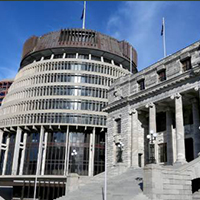
What can politicians who care about value for money in government hope to achieve? Where should they focus their efforts? Read more

Taxpayer guarantees for bank deposits are a can of worms. There should be a strong presumption against them. Those who chase higher returns should bear the risks themselves. Read more

KiwiBuild – the government programme to build or deliver 100,000 homes in 10 years – serves no useful public interest purpose and promises to endlessly distract and embarrass the government. That is the signal conclusion of KiwiBuild: Twyford’s Tar Baby, a research note released this week by The New Zealand Initiative. Read more
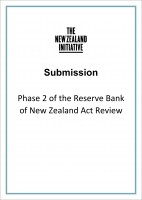
Read The New Zealand Initiative's submission to the Independent Expert Advisory Panel on Phase 2 of the Reserve Bank of New Zealand Act Review. Read more

KiwiBuild – the government programme to deliver 100,000 down-sized homes in 10 years – is a waste of time and money. It serves no useful material public purpose and absorbs time and resources that would be far better devoted to addressing the real problem – housing affordability. Read more
Bryce Wilkinson discusses on TVNZ Breakfast his new report on KiwiBuild – the government programme to deliver 100,000 down-sized homes in 10 years. He explains why this policy is a waste of time and money and why it is not going to achieve worthwhile objectives. Read more
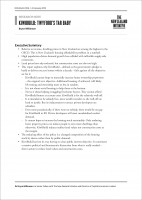
Executive SummaryRelative to income, dwelling prices in New Zealand are among the highest in the OECD. This is New Zealand’s housing affordability problem in a nutshell. Read more

Bryce Wilkinson discusses with Karyn Hay on Radio New Zealand the findings in his new report on KiwiBuild. He explains why the policy fails against all the objectives set for it. Read more

We have to take the flower by the thorns and cut the animalism out of our everyday language. That is the message this week from PETA, or the People for the Ethical Treatment of Animals. Read more

New Zealand’s screening regime for foreign investment in sensitive land conjures images of a madman waving a big stick in a public place. He is as likely to hit his own head as anyone else’s, but it is bad either way. Read more

A very long time ago, as long ago as last Friday, Yvette, 5, and Rupert, 6, committed their grandparents to 100 years of thinking time. For the uninitiated, thinking time is a penalty some parents impose on their young kids for misbehaving. Read more

Global debt is now higher relative to global income than in 2009 according to the latest International Monetary Fund statistics. This is despite the imposition of much more stringent financial regulation since the 2008 financial crisis. Read more
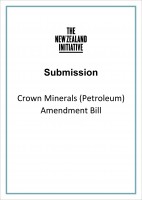
Read The New Zealand Initiative's submission to the Environment Committee on the Crown Minerals (Petroleum) Amendment Bill. Read more

There are many things only the government can do. When it fails to excel, no one else can step in. Read more